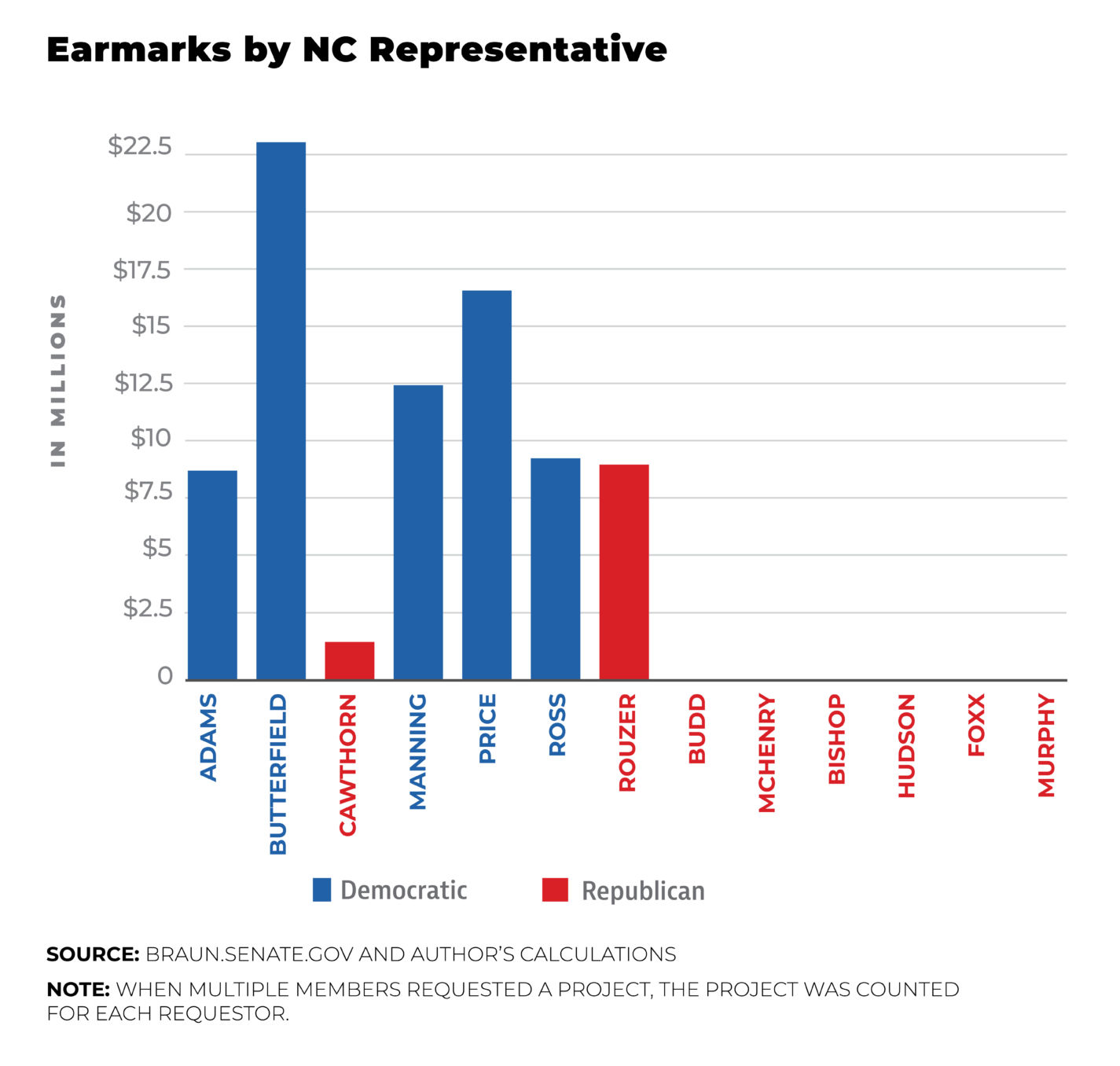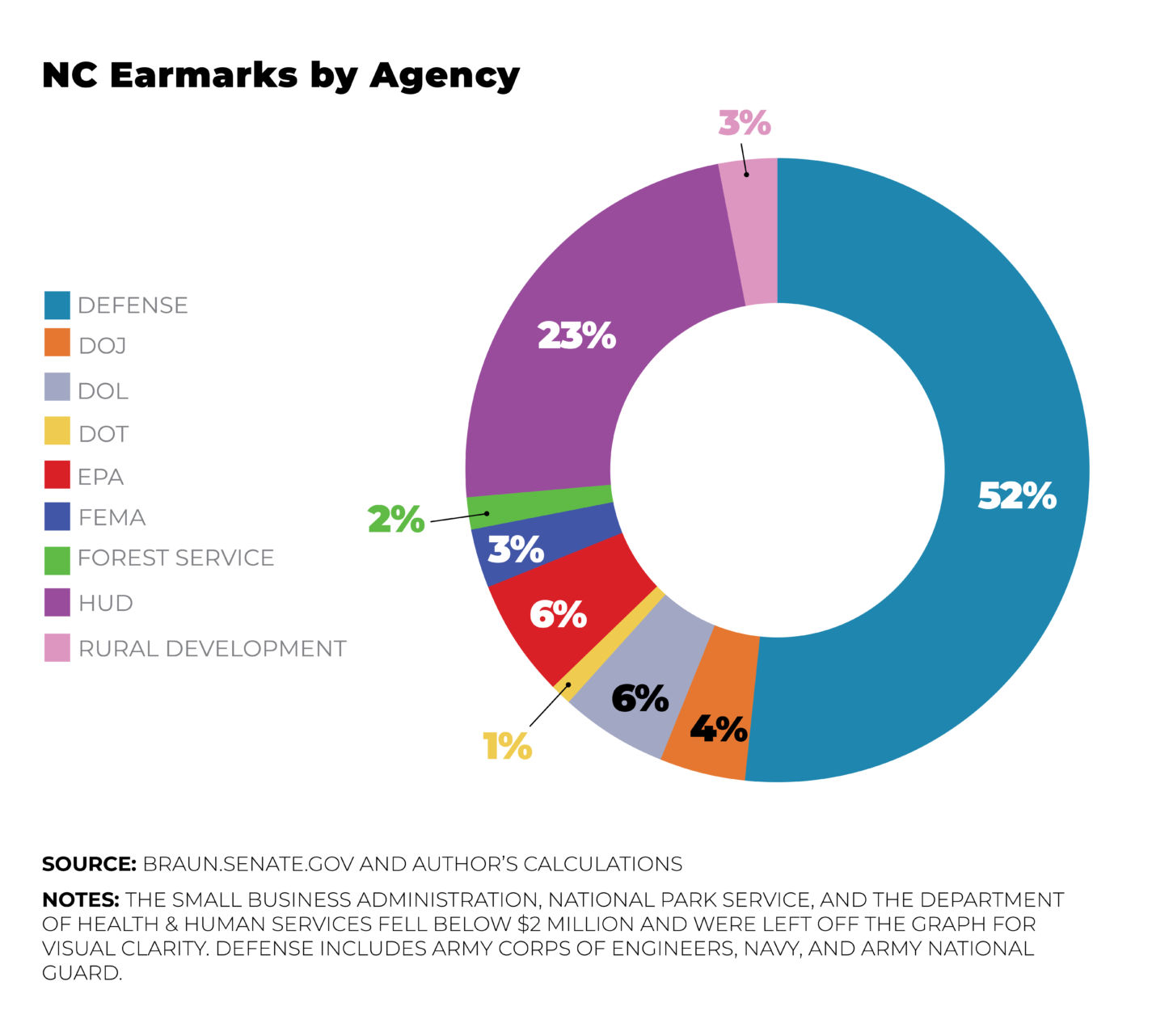NC Representatives Try to Bring Home the Bacon
Published March 17, 2022
Last week Congress passed H.R. 2471, a $1.5 trillion spending omnibus package to fund the government through September. It was loaded with earmarks costing $9.7 billion.
Earmarks are legislative provisions that direct federal dollars to pet projects at the request of a specific lawmaker. These projects circumvent the federal agencies and their grant processes and undermine state and local decision-making.
Earmarks have no public oversight or accountability for determining whether the spending is really necessary. No information about these projects is released beforehand, and often analysts must filter through the bill text itself to find these projects. Though the dollar amounts may be relatively small, each lawmaker’s requests add up. This particular spending package features 367 pages of earmarks.
Sen. Mike Braun (R-IN), an opponent of earmarks, posted the earmarks along with their requestors on his website. Sen. Braun called the spending bill “a disgrace.”
In North Carolina, no Republican member of Congress voted to support the bill while each Democrat voted in favor of the bill. Even so, North Carolina Republicans were among those who requested earmarks.
I manually pulled the data from North Carolina here. Nine North Carolina Members of Congress requested more than $200 million in earmarks. The nine members: Rep. Alma Adams (D-NC-12), Rep. G.K. Butterfield (D-NC-1), Rep. Madison Cawthorn (R-NC-11), Rep. Kathy Manning (D-NC-6), Rep. David Price (D-NC-4), Rep. Deborah Ross (D-NC-2), Rep. David Rouzer (R-NC-7), Sen. Richard Burr (R-NC), and Sen. Thom Tillis (R-NC). These 73 projects varied in size from $30,000 to a $64 million project to Camp Lejeune for a water treatment plant replacement.
See below for an overview of spending requested by member and subject area.


Some earmarks are more egregious than others. Localized projects like upgrading police radios, repairing a local street, or funding city LED lighting upgrades should be funded at the local level, not by the federal taxpayer. Other projects should not be funded by taxpayers at all. For example, Sen. Burr requested more than $8 million to Innovation Quarter, a research park in Winston-Salem. This should be funded privately and not subsidized by taxpayers at the request of political leaders who choose winners and losers. Other members requested funds for “economic development,” “economic revitalization,” and a “heritage walk” to provide a safe route between parks that would “energize the area through placemaking, interpretive signage, partnerships, and community engagement.”
Most of the earmarks may indeed be worthy causes, but that doesn’t mean they should be funded by taxpayers. Government grows out of control when strict limits are not placed on restricting expenditures to legitimate, core functions. Taxpayers are already being crushed by inflation, now they are being expected to pay for frivolous projects or items that should be funded locally.
In other states, earmarks were even more egregious. When politicians feel comfortable spending $3 million of your tax dollars on a museum dedicated to the legacy and ideals of Mahatma Gandhi, we should ask questions and demand fiscal restraint.







